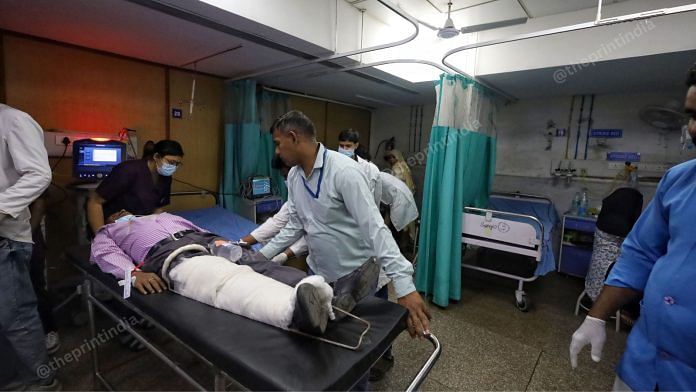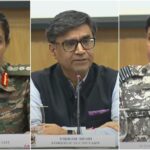Doctors at All India Institute of Medical Sciences Delhi said that they are equipped to handle all emergencies. “Last week, we had a mass casualty management mock drill at the trauma centre,” said Dr Rima Dada, professor in the Department of Anatomy at AIIMS.
Emphasising the importance of disaster readiness, Dr Aashish Chaudhry, managing director of Aakash Healthcare, a Delhi-based super specialty hospital, said, “Healthcare institutions are integral to the success of these drills, with medical experts ensuring that they are well-equipped to handle emergency situations in collaboration with authorities.”
He added, “We take our role in disaster preparedness seriously. In light of the recent rise in security concerns, especially in case of any retaliatory measures by a neighbouring country, we have activated our ‘Code Brown’ disaster protocol. This dedicated code is meant to address mass casualty incidents or major emergencies. Our entire team has undergone mock drills, ensuring that all protocols, ranging from emergency medical responses to patient management, are thoroughly practised.”
In line with the mock drills, the hospital has implemented specific procedures to ensure a seamless response during a crisis. The hospital, Dr Chaudhry said, has prepared a “meticulous” system through which the windows can be covered by curtains, perimeter lights will be turned off and signboards will be blacked out. “However, one critical factor that will not be interrupted is our emergency services. Even in such situations, our emergency care will continue to function without disruption,” he said.
Other hospitals, like Lok Nayak (LNJP), Babu Jagjivan Ram Memorial Hospital and Deen Dayal Upadhyay Hospital conducted similar mock drills Wednesday.
At New Delhi’s Ram Manohar Lohia Hospital, a “high intensity mock-drill” simulating the emergency management of “20 bomb blast victims” or individuals posing as victims, was held.
Dr Amlendu Yadav, head of emergency medicine at the hospital, said that the institution has a well-structured escalation plan to respond to disaster situations. “In the event of a mass casualty or emergency, our protocol is to prioritise critical care. Elective services, including non-urgent surgeries, are suspended temporarily so that all resources can be directed toward emergency management.”
He emphasised the hospital’s flexibility in adapting to high-pressure situations. “We are very dynamic—we can adjust according to the evolving needs,” Dr Yadav told ThePrint. To optimise resource allocation during such scenarios, he added, non-essential electricity use would be limited in areas, like hostels, corridors and administrative blocks. “Vital areas, such as the ICU and operation theatres, will remain fully functional to ensure uninterrupted care.”
Anupam Pandey, director at Asian Hospital, Faridabad, said that their hospital has been proactively engaged in emergency preparedness. “As a responsible healthcare organisation, we ensure that our team is constantly trained to deal with various emergency scenarios, including blackouts and other contingencies,” he told ThePrint, adding that the hospital has been conducting mock drills regularly to assess its readiness and response time. “We view these drills not only as a safety measure, but as part of an ongoing training process to enhance the efficiency of our front-line workers.”
Dr Sunita Kapoor, director at City X-Ray & Scan Clinic, said that her clinic has shared all the relevant safety protocols and emergency procedures with her team through comprehensive training, adding that several senior faculty members, who had first-hand experience of a similar situation during the 1971 conflict, provided invaluable insights.
“We have incorporated both online and offline training, including audio-visual aids, to ensure everyone is prepared for any eventuality,” she said.
Meanwhile, Dr Praveen Gupta, principal director & chief of Neurology at Fortis Hospital, said that mock drills are an exercise in preparedness. “There is no need to panic because of the drills.”
(Edited by Mannat Chugh)








